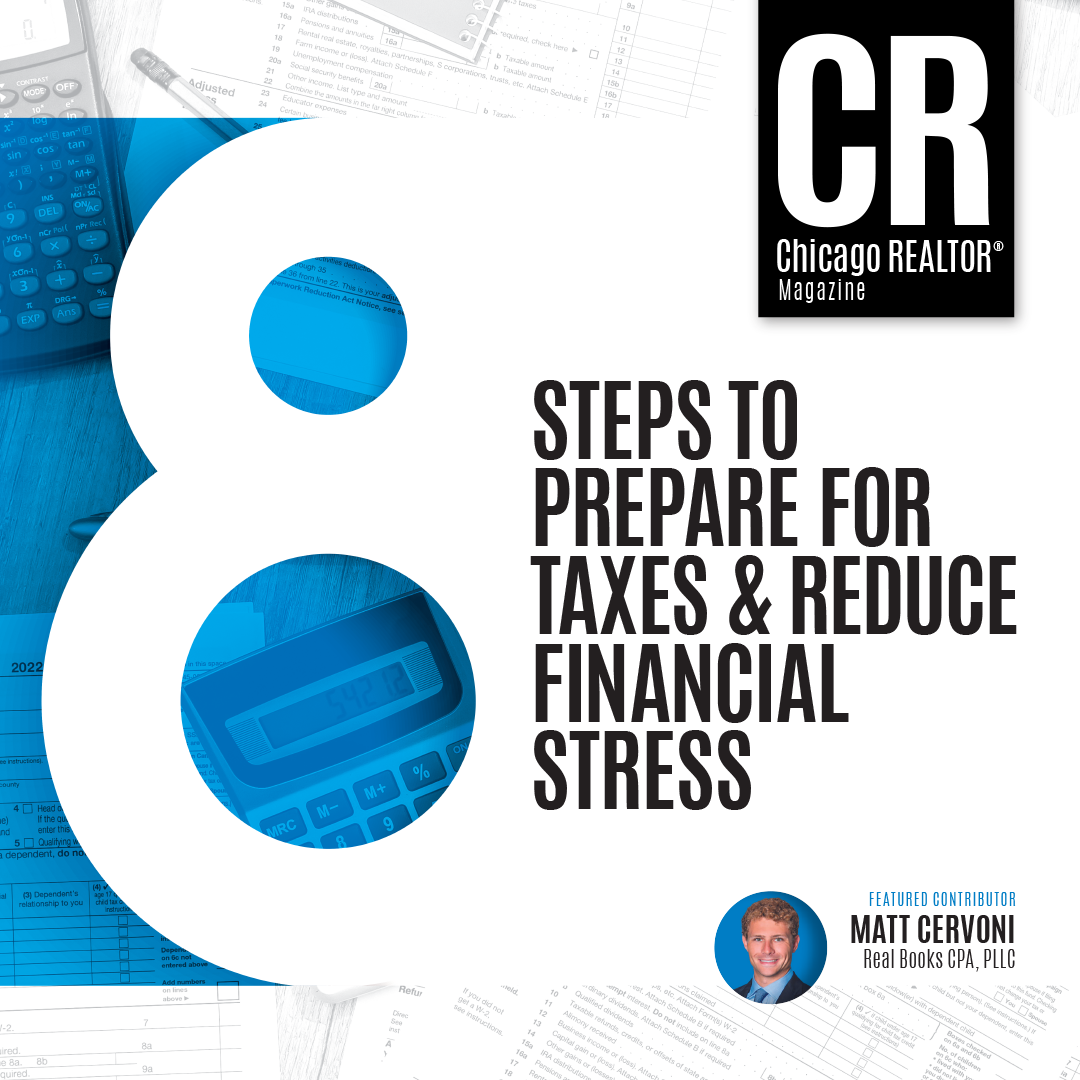We get it… managing your finances can be intimidating. We asked local experts to share their insights on budgeting, taxes and investing that every REALTOR® should consider for their own health and wealth.
On Wednesday, March 26, we hosted the “Save More, Stress Less” breakfast at our historic breakfast spot, Manny’s Deli. We’ve broken down some of our biggest takeaways from the event. Thank you again to our guest speakers for sharing your expertise!
The Real Estate Success Trifecta: Budgeting, Taxes & Investing
The 120-Day Crystal Ball
“If there’s anything you take out of this whole thing,” Liz Goodchild emphasized, “it’s that you need to change your mindset to always thinking ahead.” Liz accounts for her expenses and revenue needs at least four months in advance. This forward-thinking approach isn’t just about prospecting, it’s about creating a financial roadmap that ensures stability in a notoriously unpredictable industry.
Schedule quarterly financial check-ins with yourself or your team. Review your budget, tax savings and investment strategy. Use this time to adjust your 120-day plan and set new goals.
Study profit-and-loss statements and then assess your own. For example, how much do you spend on gas each month? Given that average, can you anticipate that as a monthly expense? You’re at the beginning of a business budget! By planning 120 days out, you’re not just reacting to the market — you’re anticipating it.
Actionable Tip:
Create a 120-day cash flow spreadsheet (message Liz on social media for her template example!). Include projected income from current contracts, anticipated closings and potential leads. Factor in all expenses, both business and personal. Review and adjust this spreadsheet weekly to stay on top of your financial trajectory.
Your Business, Your Rules
Steve Kehoe’s mindset advice applies to all: “You are all CEO’s of your own company.” This shift in perspective is crucial. You’re not just an agent — you’re running a business. And, like any savvy CEO, you need to know your numbers inside and out.
Liz agreed. Most major corporations begin their budgeting for the next year six months before it even happens, so she recommends that REALTORS® start the process at least by October before the coming year.
Darion Wiggs echoed this sentiment, advising REALTORS® to “get in the habit of proactively saving for taxes throughout the year.” You’re focused on making money and keeping it. By treating your real estate career as a business, you open doors to tax strategies and investment opportunities that can significantly boost your bottom line.
One great way to establish a line of business credit is to begin an LLC. You don’t need to set one up immediately, but once you feel ready to commit to the industry, that is a solid first step to building your official business credit.
Actionable Tip:
Set up separate bank accounts and credit cards for your business. Allocate a percentage of each commission check to a tax savings account. Aim for at least 25-30% of that amount to cover federal, state and self-employment taxes.
The Investment Game-Changer
Speaking of investments, Steve Kehoe shared his journey into real estate investing, starting with his first property purchase. He bought a three-bedroom condo and used the payments from his roommates to cover the monthly payment. “That allowed us (my wife and I) to springboard into other real estate investments,” he explained.
Build lots of lender relationships to help you evaluate deals and investments. These strategic partnerships do more than empower your clients — they can help you as well!
Darion recommends that all business owners should get a Certified Public Accountant (CPA) as soon as possible. However, he recommends interviewing each CPA, because being a CPA does not mean tax expertise. Each CPA likely has their own niche. A financial advisor will help you invest for long-term goals, so if you’re ready to consider investing in real estate, saving in a Roth or SEP IRA or just want to explore your options, that is the best expert to assist you.
Actionable Tip:
Start small with your first investment property. Consider house hacking: buy a duplex or a property with an in-law unit, live in one part and rent out the other. This can help offset your mortgage while building equity.
The Ultimate Money Toolkit
So, what’s in the ultimate financial toolkit for REALTORS®? Here’s the rundown:
- A 120-day planning mindset.
- Detailed budgeting (yes, down to birthday gifts and dry cleaning).
- Strategic tax planning and timely estimated payments (paying quarterly helps prevent fines).
- Diversified investments, including your own real estate portfolio.
- Professional partnerships with CPAs and financial advisors.
As Liz Goodchild pointed out, “There’s nobody in business that doesn’t like math.” Embracing the numbers is part of your job description now. With the right tools and mindset, you’re building an empire and the retirement plan you want.
Final Actionable Tip:
Commit to ongoing financial education. Attend workshops, read industry publications and network with successful investors. The more you know, the better equipped you’ll be during slow months or times of great change.
Your success as a REALTOR® isn’t just about closing deals — it’s about building a sustainable, profitable business that can weather any market. By implementing these strategies and embracing your role as a CEO, you’re setting yourself up for long-term success in this exciting and rewarding field.
Resources From Our Guest Experts
Investing Resources
Tax Resources From Darion
Related Budget Blog

8 Steps To Prepare For Taxes & Reduce Financial Stress According to the National Association of REALTORS®, 88% of REALTORS® are independent contractors. If you fall into this category, you may have a unique scenario that can lead to struggles […]
Related Budget blog

Your Money Matters The National Association of REALTORS® defines financial wellness as “a measure of our overall, personal well-being as it relates to your money.” As REALTORS®, you help your clients accomplish goals […]










